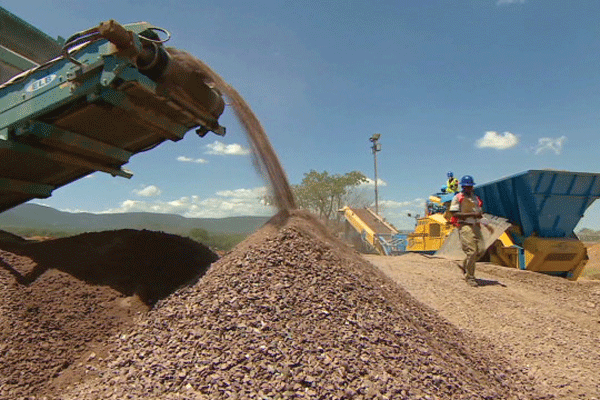The extractive industry needs to implement human rights-based principles in their operations and empower local host communities by improving their socio-economic and environmental conditions, the Southern Africa Resource Watch (SARW) has said in its International Human Rights Day commemorative message.
SARW ‘strongly’ believes that human rights should be an integral part of mining projects to ensure that there is meaningful and effective community participation in all stages of the mining cycle and to support healthy and resilient communities.
Mining and other extractive industries are a key economic sector in the growth and development of many African countries, says SARW, but have been unable to successfully contribute to breaking poverty and inequality in these countries.
“Mining, by its very nature, is destructive to the environment and often presents a myriad of changes to the socio-economic and environmental conditions that violate the rights of adjacent communities. There is now a growing recognition that extractive projects are only beneficial when they establish strong win-win relationships with those affected by the project through the identification and management of risks and opportunities,” said SARW Executive Director, Dr Claude Kabemba, in a statement.
“The existence of national, regional, and international laws designed to protect communities from the negative effects of extractive industries has done little to deter mining companies from engaging in arbitrary land grabs and forced displacements without fair compensation, as well as causing environmental damage that threatens food security and access to clean water.”
Dr Kabemba lamented that historically, companies have been reluctant to align their operations with the United Nations human rights-based development agenda, preferring to maximise their profits.
“Increasingly, there is recognition that the extractive industries need to implement human rights-based principles in their operations and empower local host communities to improve their socio-economic and environmental conditions. The Human Rights Day 2021 theme supports this need to create human rights-based economies and a new social contract which more fairly shares power, resources and opportunities,” he said.
“It is now an accepted principle that to earn a social license to operate, extractive industries are obliged to undertake effective community engagement and participation prior to the commencement of operations. This participatory approach is centred on involving local host communities in key decision-making processes at various stages of the mining cycle, from inception to mine closure.”
The executive director noted that companies can no longer afford to ignore their responsibility to respect human rights in their operations.
“The growing awareness of the UN Guiding Principles on Business and Human Rights is making more companies wake up to the negative impacts of their operations on human rights,” Dr Kabemba said.
SARW is currently implementing a project that encourages the mainstreaming of human rights in all stages of the mining cycle.
The Development Finance for Community Environment and Justice Defenders in Southern Africa project is anchored on promoting business and human rights in SADC’s mining sector through the identification of best practices for ensuring community participation.
The project, funded by Mott Foundation, promotes innovative approaches to effective and sustained community participation, community grievance redress mechanisms, and environmental justice financing in mining projects.
It intends to diffuse the negative perceptions that have long marked mining projects in Southern Africa as a gross violator of human rights (particularly those of local communities).
“Through this project, we intend to strengthen SADC countries’ regulatory frameworks for mining companies to comply with human rights protection and community investment commitments,” added Dr Kabemba.

